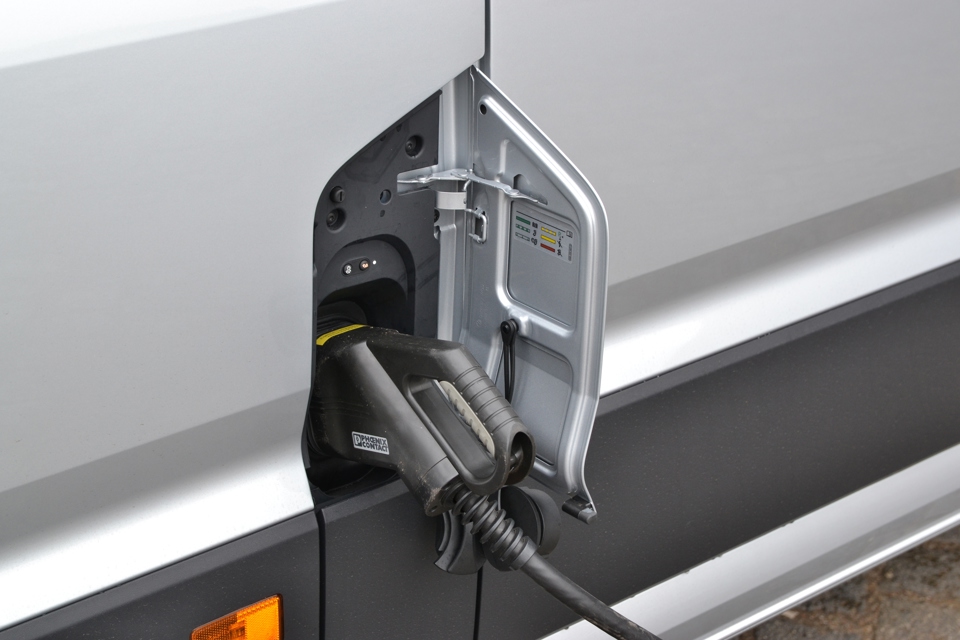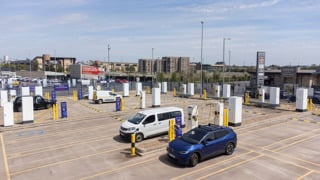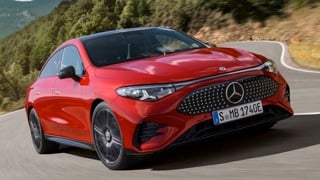Fleets are being told they need to order a percentage of battery electric vehicles (BEVs) when placing bulk orders for petrol or diesel vehicles to help manufacturers hit Government targets.
The zero emission vehicle (ZEV) mandate, which came into force this year, requires more than a fifth (22%) of cars and 10% of vans sold by manufacturers to be fully electric.
The targets for manufacturers increase each year, requiring 80% of new cars and 70% of new vans sold in Great Britain to be zero emission by 2030, increasing to 100% by 2035.
Duncan Webb, fleet director at the AA, told Fleet News at 10, he was starting to see “linked” sales, where fleets were being required to order a certain quota of electric vehicles (EVs) when ordering ICE vehicles.
“If you do want to buy a significant number of units as a fleet, then you have to buy a certain component volume of the relevant product,” he said.
Webb was not alone, with Lorna McAtear, head of fleet at the National Grid, also telling the monthly webinar that some manufacturers were insisting she could only buy ICE vans, if 10% of the order was fully electric.
However, she said: “When it comes to vans, these have got to be operationally efficient vehicles.”
Appearing alongside McAtear, Gaynor McNicholas, customer relationship director at Zenith, confirmed that BEV quotas were being required with bulk orders.
She told Fleet News at 10 that these were also being linked to the discounts being offered; the more BEVs included, the higher the discount being offered on the ICE part of the order.
“It does make it a little bit challenging when you're trying to produce a rate book for fleet operators, because you end up with all different sorts of variations,” she said.
Darren Russell, transport manager at WHG (Walsall Housing Group), said that he had been told by one manufacturer that any large fleet order would need to reflect the ZEV mandate.
However, he said that a lack of charging infrastructure meant deploying fully electric vans was difficult and simply switching to another manufacturer that may not be insisting on BEV quotas could also prove problematic.
“We take into consideration which vehicle best suits our operational needs without effecting performance so moving elsewhere for supply could have other performance and productivity implications.”
The Association of Fleet Professionals (AFP) is concerned the practice is becoming more widespread.
AFP chair Paul Hollick explained: “The problem is that some fleets just don’t have a role for these electric vans within their business. Their payload and range requirements mean there is no operational profile for which the electric van can be practically used, or there is no suitable charging infrastructure.”
It presents a conundrum for fleets – whether to try and place orders with manufacturers who were not insisting on order quotas, to not replace existing diesel vehicles and keep operating them for longer, or to buy quota electric vans and use them for occasional lighter duties or simply park them up.
“All of these courses of action are far from ideal,” continued Hollick. “Changing van supplier can be quite an arduous task for fleets, meaning that the whole van unit has to be rethought including fitting out.
“Hanging onto older vans that really need to be replaced means that you are likely to experience problems with reliability and has potential risk management and environmental implications.
“Lastly, it’s just not viable to buy expensive assets like electric vans and not really use them in the operational roles where you actually need a solution.”
The situation is likely to become more acute with the ZEV mandate for vans rising from 10% in 2024 to 70% in 2030.
“We fully understand why manufacturers are having to introduce order quotas of this type – it is very much a result of the legislation,” said Hollick.
“In a sense, we are seeing the policy in action but the issue is that there are fleets for which electric vans don’t just mean acceptable compromises but effectively won’t work. For that to change, sizeable advances in both the capabilities of electric vans and their supporting charging infrastructure need to happen.”
Similar quotas were being introduced for car orders, he added, but this was not a problem for most fleets because they were already buying a majority of electric cars.
“Electrification for fleets is very much a story of huge success for cars and much slower progress for vans,” he added.
“While the ZEV mandate stipulates lower quotas for vans than cars, it doesn’t really reflect the extent of the differences in the speed of adoption.”
News of manufacturers insisting on BEV quotas comes as Ford warned it may restrict sales of ICE vehicles in the UK to hit Government BEV targets, forcing a hike in prices.
It comes just weeks after Stellantis, which owns several brands including Vauxhall, Peugeot and Citroen, also warned it could restrict sales of cars in the UK in response to the ZEV mandate.





















Login to comment
Comments
No comments have been made yet.